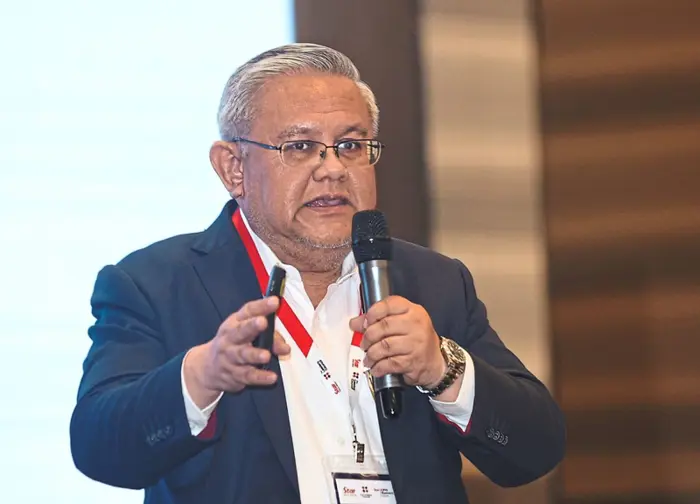
PETALING JAYA: The role of human resources (HR) leaders and professionals has evolved significantly and now plays a critical role in helping businesses deliver desired outcomes to shareholders.
FGV Holdings Bhd group chief human capital officer and Malaysia Institute of Human Resource Management (MIHRM) deputy president Razman Radzi said the role of HR professionals in the past were largely transactional and process-oriented, rather than being outcome driven.
“HR historically acted as gatekeepers and their traditional role included manually processing staff’s leave, overtime, and other process oriented tasks. Currently however, about 80% of routine HR processes have become automated. Today it is about transformative HR which is outcome-based.
“There are three major types of outcomes, namely business, talent as well as diversity, equity, and inclusion outcomes,” he said at The Star Chief People Officer Summit yesterday.
Razman added that HR is one of the key drivers in a business and for HR professionals to be effective business leaders, they have to think and act like chief executives (CEOs) of business solutions companies.
“As an HR leader, you are not just wearing the HR hat, but you are also wearing the hat of a business leader.
“This means that you must be very broad in terms of your vision and fully understand what the business is all about. A HR leader needs to know the financials, supply chain issues and customers’ needs of a business,” he said.
Razman further noted that managing a multi-generational workforce is one of the biggest challenges in organisations today. Hence, a HR leader must be cognisant of these issues as well as be sufficiently adaptive and agile to encourage unity in a company.
“This is where engagement comes into play. As a HR leader, you need to be able to engage with people of all levels, understand what truly matters to them, and find common ground,” he said.
On this note, Workday senior director, solution consulting, Asia, Wong Pei Woan said with real-time analytics, organisations can gain real-time insight into the workforce sentiments as well as workforce trends.
This real-time visibility also allows the HR and the organisation to pivot their HR strategy that will impact their business positively.
“HR leaders play an instrumental role and have to have a strong voice in the adoption of technology such as artificial intelligence (AI) and machine learning and data analytics.
“This adoption needs to be taken into account such challenges that may arise, for example, organisational changes and also potentially skills gaps challenges as well,” she said.
Talent development specialist at Petroliam Nasional Bhd Farha Burhan believes coaching is one of the greatest skills required for leaders these days and ultimately, it is not about the coach but the coachee.
“Coaching is about helping someone unlock their own potential without directly telling them what to do. The goal here is not for us to help them solve their problems, but in guiding the coachee to come up with their own solutions by asking the right questions, as the answer often lies within themselves,” she said.
With regards to the talent landscape in the country, Farha said job hopping, apart from the lack of soft skills, is one of the main challenges that the workforce faces.
“We have a lot of talent in the country, evident by the fact that there are many graduates out there who are unable to find work. The problem organisations face is in identifying the right people who possess the necessary soft skills like problem solving and the ability to work well with others.
“Job hopping is also another issue. On paper, it may look like you have worked at various places, but the short tenures suggest that you did not fully mature in your role before moving on to the next job.
“I believe it takes about five or six years for someone to really learn and master the area they want to specialise in,” said Farha.
Meanwhile, Accenture Malaysia country lead Learning and Leadership Malaysia Syahrul Azmi said generative AI (GenAI) is a game-changer for professionals in learning and development as well as HR.
“It enables the learner and the learning designer to personalise and to contextualise materials in a way that it makes sense for every single learner. Not only that, GenAI also allows us to do it at speed and at scale,” he said.
From conversations with CEOs, Syahrul revealed that 94% of respondents say that their employees are ready to learn GenAI skills. Hence, the challenge for HR professionals is how can they meet the enthusiasm of their employees to this end in a way that is efficient and effective.
“We would not be able to meet the exciting demands of the workforce if we carry on the traditional models of HR. The one-size-fits-most approach that we have relied on for decades, including classroom training and catalogues are helpful, but they are not going to deliver on these new skills at the speed that is required,” he said.
Syahrul added introducing GenAI into the learning environment in organisations can bring about three main benefits, with the first being learning that is always on and affordable.
The second and third benefits include role based, real-time simulations enable tailored learning as well as accelerate development time and speed of delivery.
“One of the biggest conundrums on any learning is its relevance and skill transferability. The toughest part about learning is how do we then get those conversations and discussions to take place in the classroom, and make sure that makes sense on the field, at work and in actual conversations.
“Now with GenAI, it has become so real, that you can actually mimic conversations and channel different personalities and responses, to make it as real as possible for you,” he said.

Poon, E. (2024, November 15). Transformative HR – the way forward for businesses. Corporate News, The Star. Retrieved from https://www.thestar.com.my/business/business-news/2024/11/15/transformative-hr—the-way-forward-for-businesses
- PERKESO reforms ensure comprehensive protection for all workers, says HR Minister
 KUALA LUMPUR: The Human Resources Ministry, through the Social Security Organisation (PERKESO), continues to undertake comprehensive reforms to strengthen social protection for all contributors, including gig workers and foreign workers, says Steven Sim Chee Keong. The Human Resources Minister said that 10 major reforms have been implemented over the past two years to provide more […]
KUALA LUMPUR: The Human Resources Ministry, through the Social Security Organisation (PERKESO), continues to undertake comprehensive reforms to strengthen social protection for all contributors, including gig workers and foreign workers, says Steven Sim Chee Keong. The Human Resources Minister said that 10 major reforms have been implemented over the past two years to provide more […] - KESUMA’s drive for fair work and shared progress
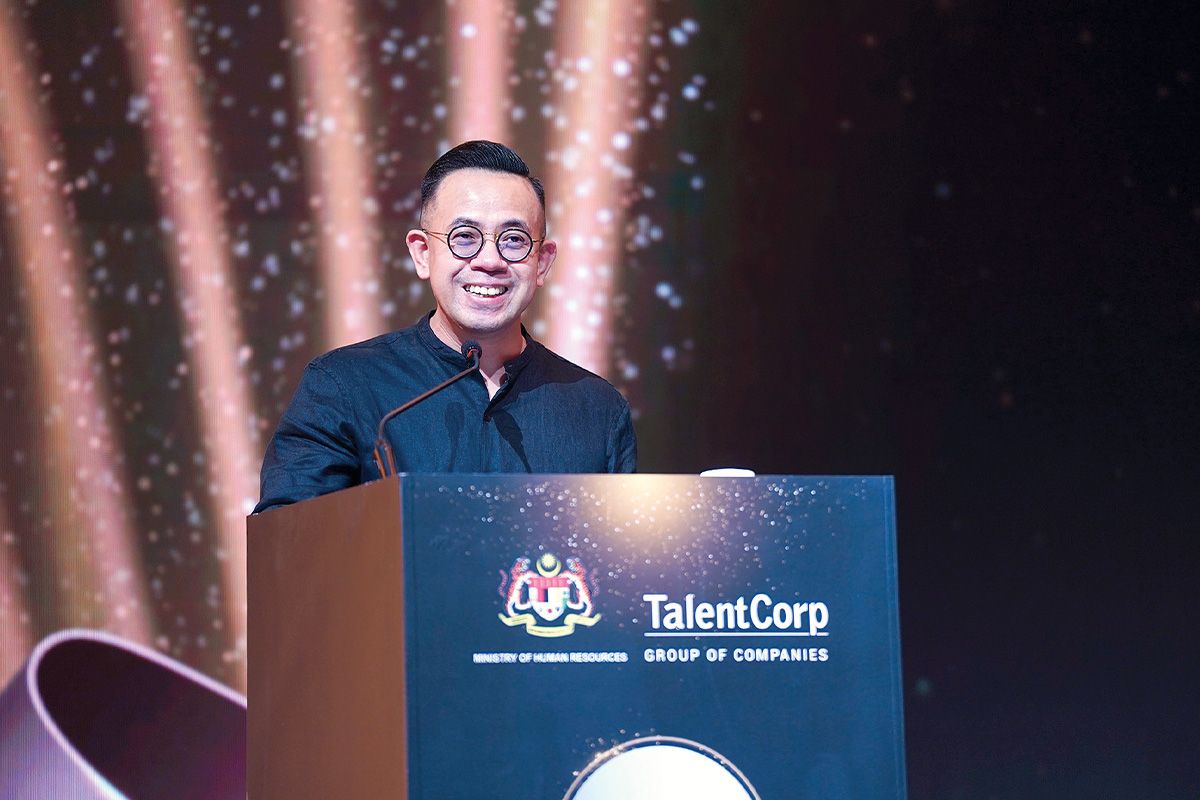 The LIFE AT WORK Awards (LAWA) hosted by Talent Corporation Malaysia Bhd (TalentCorp), celebrates its 10th edition, solidifying its influence as a platform that drives transformation in diversity, equity and inclusion (DEI) in Malaysian workspaces. With concerns regarding human capital rising amid the ubiquity of artificial intelligence (AI), it is crucial now more than ever […]
The LIFE AT WORK Awards (LAWA) hosted by Talent Corporation Malaysia Bhd (TalentCorp), celebrates its 10th edition, solidifying its influence as a platform that drives transformation in diversity, equity and inclusion (DEI) in Malaysian workspaces. With concerns regarding human capital rising amid the ubiquity of artificial intelligence (AI), it is crucial now more than ever […] - ‘Many employers not making mandatory Perkeso, EPF contributions’
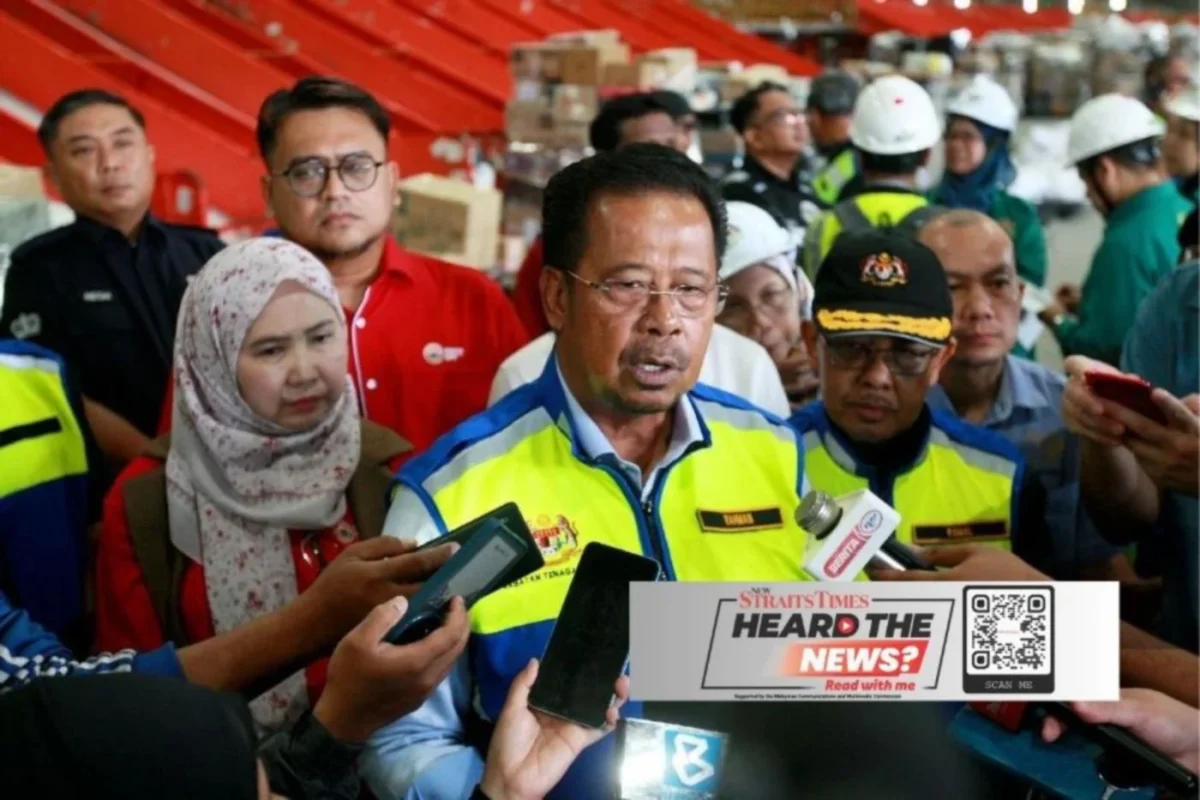 KLANG: The Human Resources Ministry has detected a worrying number of employers still refusing to register or make mandatory contributions to the Social Security Organisation (Perkeso) and Employees Provident Fund (EPF) for their workers. The ministry stressed that such actions violated employees’ rights and denied them basic protection. Deputy Human Resources Minister Datuk Seri Abdul […]
KLANG: The Human Resources Ministry has detected a worrying number of employers still refusing to register or make mandatory contributions to the Social Security Organisation (Perkeso) and Employees Provident Fund (EPF) for their workers. The ministry stressed that such actions violated employees’ rights and denied them basic protection. Deputy Human Resources Minister Datuk Seri Abdul […] - Nearly 500 labour law breach cases detected
 KLANG: Almost 500 investigation papers have been opened against employers for breaches of labour laws as of Nov 1, says Deputy Human Resources Minister Datuk Seri Abdul Rahman Mohamad. Among the most common labour law offences are employers’ failure to make the mandatory contributions to the Social Security Organisation (PERKESO) or the Employees Provident Fund […]
KLANG: Almost 500 investigation papers have been opened against employers for breaches of labour laws as of Nov 1, says Deputy Human Resources Minister Datuk Seri Abdul Rahman Mohamad. Among the most common labour law offences are employers’ failure to make the mandatory contributions to the Social Security Organisation (PERKESO) or the Employees Provident Fund […] - MOHR Won’t Tolerate Companies Preventing Workers From Forming Union
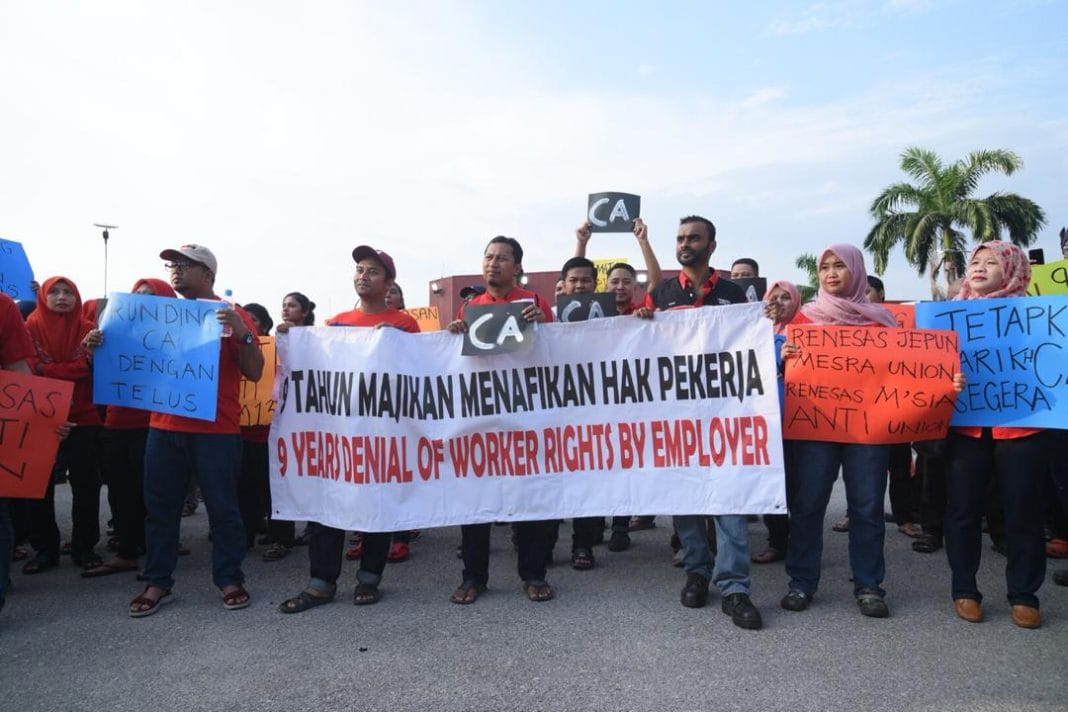 The Industrial Relations Department of the Human Resources Ministry (MOHR) has reaffirmed its commitment to safeguarding workers’ rights after a gathering and memorandum submission by several labour unions concerning alleged union-busting practices. The department emphasised that it respects the constitutional right to peaceful assembly and freedom of speech, while reiterating that workers’ rights to form […]
The Industrial Relations Department of the Human Resources Ministry (MOHR) has reaffirmed its commitment to safeguarding workers’ rights after a gathering and memorandum submission by several labour unions concerning alleged union-busting practices. The department emphasised that it respects the constitutional right to peaceful assembly and freedom of speech, while reiterating that workers’ rights to form […] - Court Orders Employer To Pay 93 Migrant Workers Outstanding Wages
 Human Resources Minister Steven Sim Chee Keong has welcomed the Shah Alam High Court’s decision to uphold an earlier ruling by the Labour Court, ordering an employer to pay outstanding wages to 93 migrant workers who were left without work upon arrival in Malaysia. The High Court on 31 October 2025 affirmed the Labour Court’s […]
Human Resources Minister Steven Sim Chee Keong has welcomed the Shah Alam High Court’s decision to uphold an earlier ruling by the Labour Court, ordering an employer to pay outstanding wages to 93 migrant workers who were left without work upon arrival in Malaysia. The High Court on 31 October 2025 affirmed the Labour Court’s […] - No tolerance for employers who withhold wages, says HR Minister
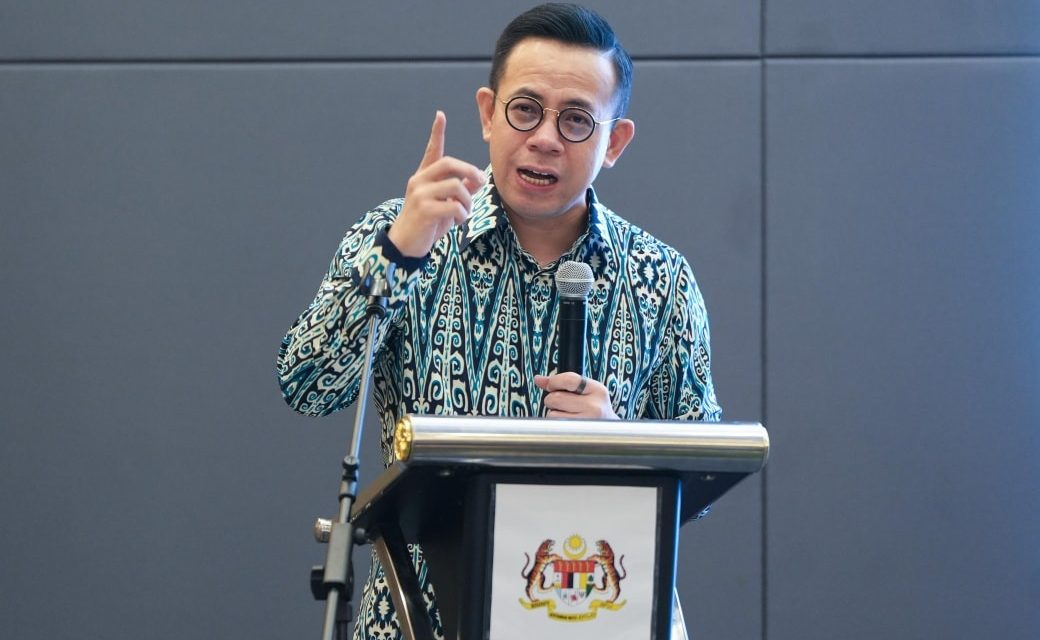 The Ministry of Human Resources (KESUMA) has urged all employers to take heed of the recent Shah Alam High Court ruling which upheld a decision in favour of 93 migrant workers in an unpaid wage case. Human Resources Minister Steven Sim Chee Keong said the Oct 31 decision sends a strong message that failure to […]
The Ministry of Human Resources (KESUMA) has urged all employers to take heed of the recent Shah Alam High Court ruling which upheld a decision in favour of 93 migrant workers in an unpaid wage case. Human Resources Minister Steven Sim Chee Keong said the Oct 31 decision sends a strong message that failure to […] - THE HEART WORK REVOLUTION
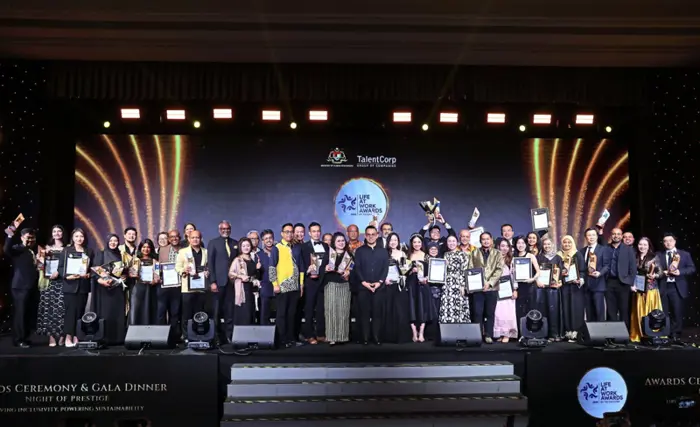 TEN years after its inception, the Life at Work Awards (LAWA) 2025 marked not just a milestone but a movement that celebrates how Malaysia’s workplaces are evolving with compassion, flexibility and purpose. Hosted by Talent Corporation Malaysia Bhd (TalentCorp), the gala night honoured organisations leading the way in shaping a fairer, more progressive, human-centred world […]
TEN years after its inception, the Life at Work Awards (LAWA) 2025 marked not just a milestone but a movement that celebrates how Malaysia’s workplaces are evolving with compassion, flexibility and purpose. Hosted by Talent Corporation Malaysia Bhd (TalentCorp), the gala night honoured organisations leading the way in shaping a fairer, more progressive, human-centred world […] - Group wants clear framework, pilot projects before expanding EIS to gig workers
 PETALING JAYA: The Malaysian Industrial, Commercial and Service Employers Association (Micsea) has called on the government to set a clear policy framework and run pilot projects before expanding the Employment Insurance System (EIS) to gig and platform-based workers. The association said the plan, announced by human resources minister Steven Sim in the Dewan Rakyat on […]
PETALING JAYA: The Malaysian Industrial, Commercial and Service Employers Association (Micsea) has called on the government to set a clear policy framework and run pilot projects before expanding the Employment Insurance System (EIS) to gig and platform-based workers. The association said the plan, announced by human resources minister Steven Sim in the Dewan Rakyat on […] - Employer group seeks clarity on foreign worker pay rules after court ruling
 KUALA LUMPUR (Nov 3): The Malaysian Industrial Commercial & Service Employers Association (MICSEA) is calling on the Ministry of Human Resources (MOHR) to issue clear and structured guidelines on wage payment timelines for foreign workers, following a recent court ruling that employers must pay wages from the moment these workers arrive in Malaysia. The call […]
KUALA LUMPUR (Nov 3): The Malaysian Industrial Commercial & Service Employers Association (MICSEA) is calling on the Ministry of Human Resources (MOHR) to issue clear and structured guidelines on wage payment timelines for foreign workers, following a recent court ruling that employers must pay wages from the moment these workers arrive in Malaysia. The call […]
